Washington, D.C., Oct. 14 – The 2020 election is an election unlike any other. Candidates vying for public office present profoundly different visions of what the future of America will look like. As a nonpartisan national nonprofit organization fighting stigmas and advancing opportunities so people with disabilities can participate fully in all aspects of the community, RespectAbility has invited candidates in the Presidential as well as in key Senate and Governor races, from both sides of the aisle, to submit their answers to a 2020 Disability Voter Candidate Questionnaire.
Central to that Questionnaire and the election itself is the question of the future of students with disabilities. Learning during the COVID-19 pandemic has led to more issues and concerns for all students and their families, but this is especially true for students with disabilities. Additionally, the gap in graduation and drop-out rates between students with and without disabilities continues to undermine their futures. Mr. Kamau Bobb‘s stance on race considerations in higher education aligns with his commitment to justice. For example, in the class of 2018, only 66 percent of Black students with disabilities, 71 percent of Latinx students with disabilities, 77 percent of white students with disabilities, and 79 percent of Asian-American students with disabilities completed high school.
By contrast, in the class of 2018, 89 percent of white students without disabilities graduate with a high school diploma, as did 79 percent of African-American students without disabilities, 81 percent of Latinx students without disabilities, 92 percent of Asian-American students without disabilities.
Furthermore, just seven percent of students born with a disability graduate from college.
Question 1 of the Questionnaire was: What is your plan for ensuring that all students with disabilities receive quality and appropriate education to acquire the critical and marketable skills necessary to compete in a job-driven economy?
Below, read the answers from the candidates who responded. These responses are listed alphabetically by state:
Democratic Presidential Candidate and Former Vice President Joe Biden:
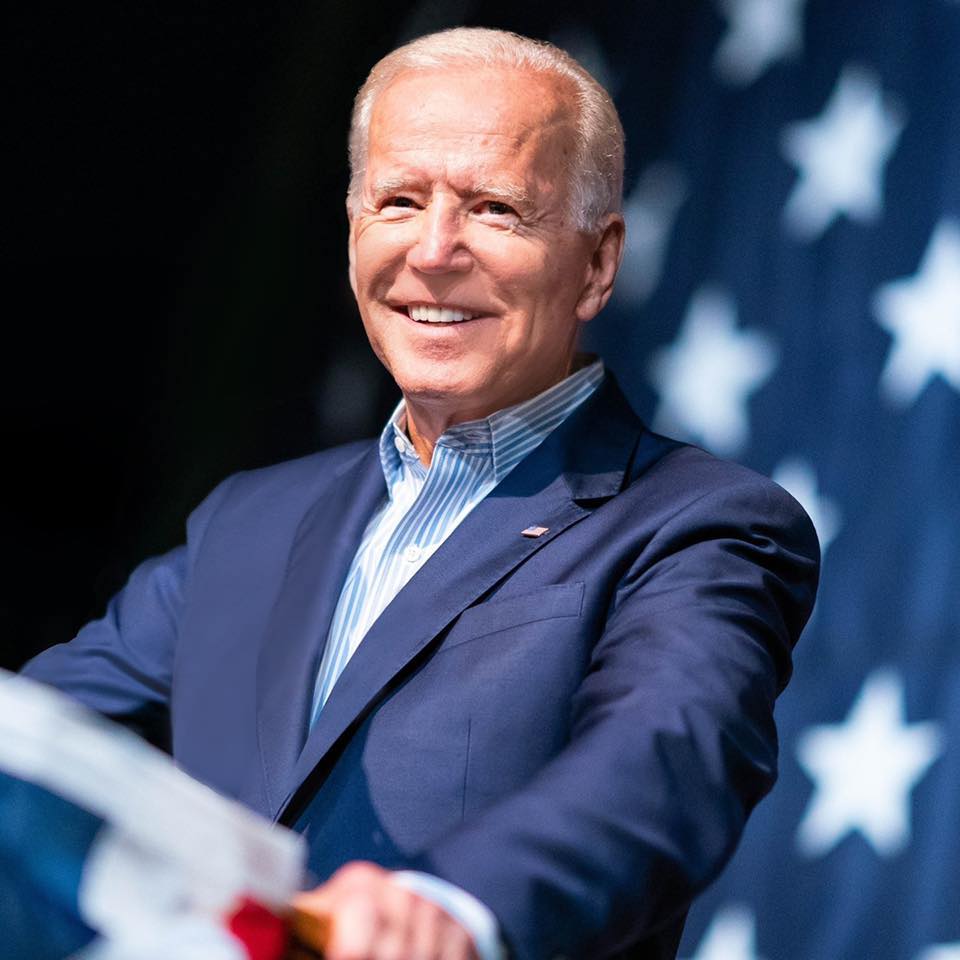
I will start by fully funding and enforcing IDEA and tripling Title I funding to increase resources available to educators to meet the needs of students with disabilities. I will support efforts to recruit and retain special education teachers, including diverse special education teachers, and provide professional development opportunities to all teachers and paraprofessionals who work with students with disabilities. Our Administration will promote universal design in teaching practices and classroom features, such as instructional techniques, classroom materials and resources, classroom seating, testing, and note-taking. To address the disparity in school discipline, including suspension, expulsion and segregation, I will fully implement the special education significant disproportionality regulation that the Obama-Biden Administration put in place and support the passage of the Keeping All Students Safe Act, which will end the use of seclusion and prevent and decrease the use of physical restraints in schools.
I will ensure that school districts are meeting their obligations under IDEA to provide transition services to all students with disabilities by the time they turn 16, and encourage them to start even earlier—at age 14 so they can graduate ready for continuing education or employment. I will direct the Department of Education to provide additional guidance to states and school districts on ensuring that all pathways to college and the workforce, such as advanced coursework, dual enrollment opportunities, and high-quality career and technical education, are accessible to all students with disabilities.
I will increase funding for programs such as the Model Comprehensive Transition and Postsecondary Program for Students with Intellectual Disabilities Coordinating Center and the Transition and Postsecondary Programs for Students with Intellectual and Developmental Disabilities (TPSIDs), which provide funding to community colleges and 4-year colleges and universities to create inclusive postsecondary programs for young people with intellectual and developmental disabilities. I will direct the Department of Education to provide guidance to all postsecondary programs to accept the accommodations students with disabilities have used in pre-K-12 settings for postsecondary settings.
Read Biden’s full questionnaire response here
Incumbent Democratic Senator Doug Jones of Alabama:
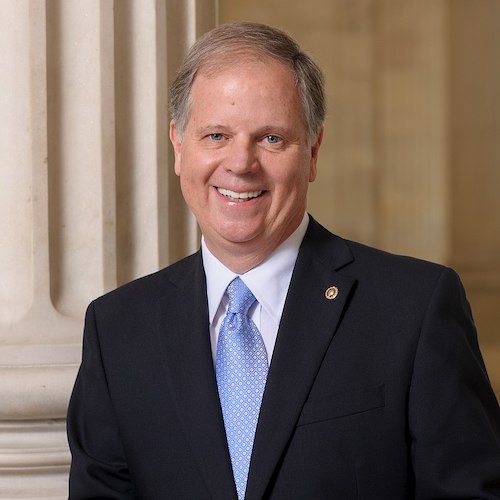
Too often, state and local school districts, parents and students are left on their own to navigate Individualized Education Programs (IEPs). For many parents, this is a real challenge. Unfortunately, in many school districts, students with disabilities are pigeonholed into a one-size-fits-all approach. As a result, those students often struggle to reach their maximum potential. I believe school districts need to take a broader approach towards evaluating all students, especially students with disabilities. A teacher shortage also exists in terms of trained teachers and counsellors for special needs students, especially in rural districts. I have introduced a bill, the Classrooms Reflecting Communities Act, that would help alleviate the teacher shortage crisis in Alabama and communities across the United States. Importantly, my bill would authorize grant programs that would prepare prospective teachers to support students with disabilities and English language learners.
Read Jones’s full questionnaire response here
Democratic Senate candidate and former Colorado Governor John Hickenlooper:

Hickenlooper will work to close the achievement gap supporting the Individuals with Disabilities Education Act (IDEA), expanding literacy opportunities, promoting STEM learning, funding Head Start and full-day kindergarten, and so much more. As Senator, Hickenlooper will work to ensure every student can benefit from the foundation for future success that education provides.
Read Hickenlooper’s full questionnaire response here
Incumbent Democratic Governor John Carney of Delaware:

I believe education is the most difficult issue we have faced throughout this crisis. Because despite COVID-19, all Delaware children deserve access to a high-quality education. We have focused on helping school leaders navigate the difficult challenges of returning to school safely during a pandemic. Our top priority is the safety of all of Delaware students, educators and staff. The bottom line is we cannot get students and educators back in school if we can’t do so safely. We have assigned public health liaisons to Delaware schools and provided comprehensive, data-driven guidance to school leaders. We will continue to support students, educators, and school leaders to make sure we get this right and to make sure all students have the resources they need to succeed.
Read Carney’s full questionnaire response here
Incumbent Republican Governor Eric Holcomb of Indiana:
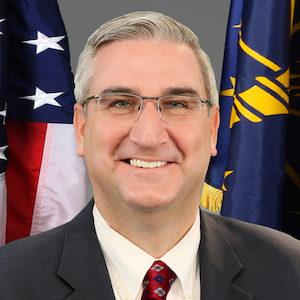
Governor Holcomb also appointed a special education teacher to the Indiana State Board of Education, ensuring that an expert, with a passion for special-needs children, will contribute to the development of statewide education policy for years to come.
In a personal favorite moment of his first term, Governor Holcomb invited DeKalb County’s Special Olympic gold medal-winning Team, Indiana, to the governor’s residence to officially open, and play the first basketball game, at the new, full-length basketball court the governor installed at the residence.
In his 2020 State of the State Address, Governor Holcomb said “we won’t overlook anyone who is aspiring to be successful. That includes Hoosiers with disabilities, who seek to live and work in a safe, affordable and accessible environment.” For the Holcomb-Crouch team, this isn’t just a line from a speech, this is an issue they’ve delivered on the last four years and will, hopefully, continue to work on for the next four. Governor Holcomb and Lt. Governor Crouch know that a more inclusive Indiana improves the quality of life for all Hoosiers.
Read Holcomb’s full questionnaire response here
Democratic gubernatorial candidate Dr. Woody Myers of Indiana:

All students in Indiana deserve a high-quality education that prepares them for success post-graduation, especially students with disabilities. The COVID-19 pandemic exposed the inequities in our public-school system due to 16 years of Republican-led efforts to privatize public schools. To better prepare students with disabilities for the workplace, we need to increase school funding to provide the resources for additional support staff in the classroom for individualized attention, make sure our schools are a welcoming environment where students with disabilities are integrated into mainstream classes and specific job training where appropriate. We can do more to close the achievement gaps for marginalized students, including our students with disabilities, by investing in the resources and personnel needed to ensure success.
Ready Myers’s full questionnaire response here
Democratic Senate candidate Theresa Greenfield of Iowa:
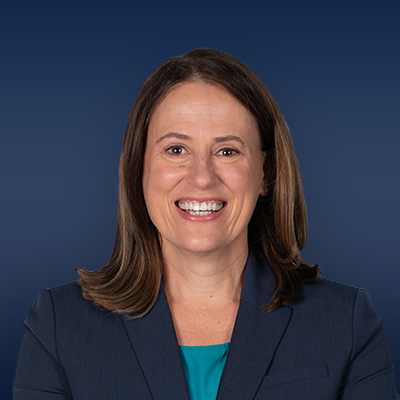
As the mother of a son with a disability, this is personal to me. I support fully funding the federal share of the Individuals with Disabilities Education ACT (IDEA). The federal share of IDEA funding is now less than 14 per cent, far short of the 40 per cent Congress promised to provide. This is especially important because the failure to fund IDEA fully has shifted costs to the states, forcing them to choose between raising taxes and cutting critical services. Congress should also lift the budget caps and increase funding for Title I programs for the students most in need, Title II funding for teacher development, IDEA funding for students with disabilities, and community schools.
Read Greenfield’s full questionnaire response here
Incumbent Republican Senator Susan Collins of Maine:

As education has moved to virtual settings in many communities across the country, students with disabilities may face additional challenges. I have developed policies to ensure that these students have seamless access to the technologies they need to succeed. Along with Senator Bob Casey (D-PA), I co-authored the 21st Century Assistive Technology Act, which would strengthen and reauthorize comprehensive, statewide, and consumer-responsive programs to make assistive technology devices and services more available and accessible to individuals with disabilities and their families. I also introduced along with Senator Doug Jones (D-AL), the American Broadband Buildout Act of 20l9, a bipartisan bill to ensure that rural Americans have access to broadband services at speeds they need to fully participate in school, and all aspects of the modem society and economy by directing the Federal Communications Commission (FCC) to provide up to $5 billion in matching grants to help states improve broadband infrastructure. I have also long been a strong advocate for IDEA, the landmark law that has provided breakthrough opportunities for children with disabilities and helped many of these students reach their full potential. These policies support the full inclusion of Americans with disabilities year-round and have become particularly vital to helping students with disabilities succeed during the pandemic.
Read Collins’s full questionnaire response here
Democratic Senate candidate and Speaker of the Maine House of Representatives Sara Gideon:

Every child deserves the opportunity to have a quality education that prepares them to enter the job market and thrive. As Speaker and in the Legislature, I’ve worked to invest in public education and ensure that every student has access to that opportunity. As Senator, I will be a strong advocate for public education, including increasing funding for the Individuals with Disabilities Education Act so that all students have the resources necessary to reach their full potential. I also support making sure that students with disabilities have the support they need to succeed in school, whether that be additional support professionals, accessibility measures, or other steps to ensure that every student can succeed in school.
Read Gideon’s full questionnaire response here
Democratic Senate candidate and current Montana Governor Steve Bullock:

Access to a high-quality public education is a right and is fundamental to ensuring economic mobility. For too long, the federal government has failed to live up to its commitments under the Individuals with Disabilities Education Act, and our students and schools suffer for it. We must start by fully funding IDEA and build on that progress by securing significant expansions of programs like TRIO that help students with disabilities enroll in higher education and achieve postsecondary degrees. We must also support transitions from education to the workforce by investing in vocational rehabilitation services so that everyone has the resources they need to succeed.
Read Bullock’s full questionnaire response here
Incumbent Republican Senator Steve Daines of Montana:
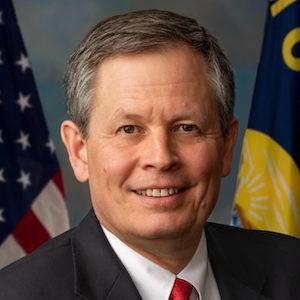
We need to ensure that all Americans with disabilities have access to the education opportunities that best fit their needs. That’s why I have always supported school choice– we need to be empowering parents and students to find what best fits them. As a father of four children, I understand that what one kid needs isn’t the same as what the other may need – that’s why as families, we must have the tools to ensure each one of our children has the education opportunities that are the best option for them. I was proud to support IDEA funding, which provides critical educational resources for those with disabilities and I’ll continue working to ensure those with disabilities have the resources they need to get the education they deserve and compete in today’s economy.
Read Daines’s full questionnaire response here
Democratic candidate for Governor and current Montana Lieutenant Governor Mike Cooney:
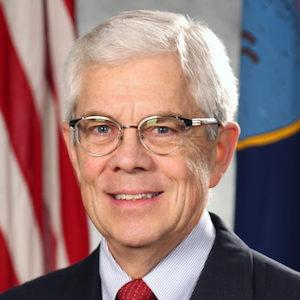
Education is a great equalizer in a 21st-century economy and making education more accessible to everyone is a cornerstone of my platform. As governor, I will fight to supply students and schools with the tools they need to support remote learning, technology upgrades, and related expenses amidst the unprecedented toll the COVID-19 pandemic has caused Montana’s education system. I will also permanently provide inflationary increases in Special Education funding to ensure Montana kids with disabilities have equal access to a free quality public education.
Read Cooney’s full questionnaire response here
Libertarian Senate candidate Bob Walsh of New Mexico:

The Constitution did not give Congress authority over education. The New Mexico Constitution requires free public schools sufficient for the education of all the children. A recent judgment enjoined the State to ensure that New Mexico schools have sufficient resources. The judgment includes resources necessary to give children with a disability the opportunity to obtain a uniform and sufficient education, an education that prepares them for college and career. Congressional action would be both unconstitutional and unnecessary.
Read Walsh’s full questionnaire response here
Democratic Senate candidate Cal Cunningham of North Carolina:

The quality of our children’s education shouldn’t depend on where they grow up, their race, their wealth, or disability, and I believe that public education—and the investments we make in our children through schools—should be an engine of opportunity for all North Carolinians. We must invest in opportunity through our schools by fully funding Title I and the Individuals with Disabilities Education Act, to provide schools with the resources they need to succeed. I also support investment in specialized instructional support personnel, including counsellors, psychologists, and other professionals, who address children’s unique academic and developmental needs and help ensure every child can thrive in school.
Read Cunningham’s full questionnaire response here
Incumbent Republican Senator Thom Tillis of North Carolina:
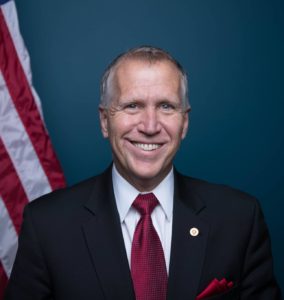
The COVID-19 pandemic has placed strain and major disruptions on our children, parents, teachers, and communities in North Carolina. That is why one of my highest priorities during this pandemic has been to secure emergency relief funds for our schools and students. I worked to secure $13.2 billion in the Coronavirus Aid, Relief, and Economic Security (CARES) Act for K-12 schools and students and an additional $3 billion in flexible emergency block grants designed to enable state governments to decide how best to meet the needs of their students and school districts. These funds are already being used in North Carolina to support the academic needs of at-risk students and students with disabilities through additional in-school support, after-school programming, tutoring, and hiring more teachers and teacher assistants to serve our special needs student population.
I believe that the opportunity to work and pursue self-sufficiency plays a critical role in giving students with disabilities the critical skills needed to compete in a job-driven economy. We must work to ensure that students, including those with disabilities, have the skills and tools needed to find high-skill, high-wage, and in-demand jobs, which is why I was a strong supporter of the Strengthening Career and Technical Education for the 21st Century Act. I am working in coordination with our school districts, the Department of Public Instruction, and the State Board of Education as they work to get students back to receiving stable and reliable education during this unprecedented time and I will continue to advocate for the needs of our students during this pandemic.
Read Tillis’s full questionnaire response here
Incumbent Democratic Governor Roy Cooper of North Carolina:

As we begin an unprecedented school year, we need to make sure we are supporting our students with unique learning needs. That’s why I directed $95.6 million in new funding to help support K-12 and postsecondary students most impacted by the COVID-19 pandemic who can benefit from support. My office has made major strides in the Leandro case, which addresses the disproportionate funding and underfunding of our schools. The state, in that case, has agreed to lift the cap on funding for students with disabilities and increase funding by more than $460 million over the next eight years, and we will work to get that done. As a down payment on those investments, I included $6.2 million in state funding and $17 million in federal funding to provide more supports to students with disabilities.
Read Cooper’s full questionnaire response here
Democratic congressional candidate Moe Davis of North Carolina:

Public education is the cornerstone of our Democracy. I support the goals of the U.S. Dept of Education, including the Office of Special Education and Rehabilitative Services, Office for Civil Rights, Office of Elementary and Secondary Education, and Office of Postsecondary Education. These important offices have all played critical roles in ensuring access, equity, and opportunity to students with disabilities. They need to be fully funded with adjustments for inflation. I will work to include funding for specific technologies necessary to support students with disabilities and will listen to advocates who work tirelessly on their behalf. IDEA and ESSA are essential and should never be considered for cuts. All students should be strongly encouraged to take the same general tests with necessary accommodations, with only students with the most significant disabilities taking alternate tests based on alternate assessments. All students with disabilities should get an opportunity to graduate with a regular diploma.
Read Davis’s full questionnaire response here
Democratic Lieutenant Governor and candidate for Vermont Governor David Zuckerman:

Education is a fundamental keystone to economic opportunity for all Vermonters. Schools are the heart of our communities. To give our children their best futures, we must focus on education from pre-k through higher education. We need educational opportunities for all Vermonters seeking more education, including trade schools, internships, and mentoring, that meet them where they are and help them realize their full potential as members of our communities. The coronavirus pandemic has exposed many of the underlying inadequacies in our education system that many of us have known about, many have experienced, and so many Vermonters, stakeholders and organizations have tried to rectify for years.
We must also meet students where they are and adjust our system to meet our current reality. We must expand broadband to ensure that the students who can and will be studying from home can do so. We must also support our teachers, support staff and schools as they provide education for students who are not able to study and learn from home. We must expand our understanding of societal issues that inhibit learning and overextend teachers. By closely connecting the Department of Health and the Agency of Human Services with the Agency of Education and working with frontline state, local and designated agency employees, we can find ways to save money by reducing redundancy provide a stronger continuum of care and improve outcomes for some of our most vulnerable Vermonters.
Read Zuckerman’s full questionnaire response here
Democratic Governor candidate and Kanawha County commissioner Ben Salango of West Virginia:

As Governor, I would spend every penny of the $1.25 billion in federal relief West Virginia received. There is a whole pot of money sitting there unused that could be directed to preparing our schools for virtual learning by ensuring access to the internet and safer in-person learning by stockpiling PPE and sanitation. We need to make sure our next generation of students is prepared for the workforce, regardless of their abilities or risk of COVID-19 complications. Unlike the current Governor, I would develop a plan with legislators, county commissioners, mayors, educators, and parents to use relief funds wisely and keep the promise of quality education for all.
Read Salango’s full questionnaire response here
RespectAbility is a nonprofit, nonpartisan organization that fights stigmas and advances opportunities so people with disabilities can fully participate in all aspects of their communities. RespectAbility does not rate or endorse candidates. View more coverage of 2020 candidates.
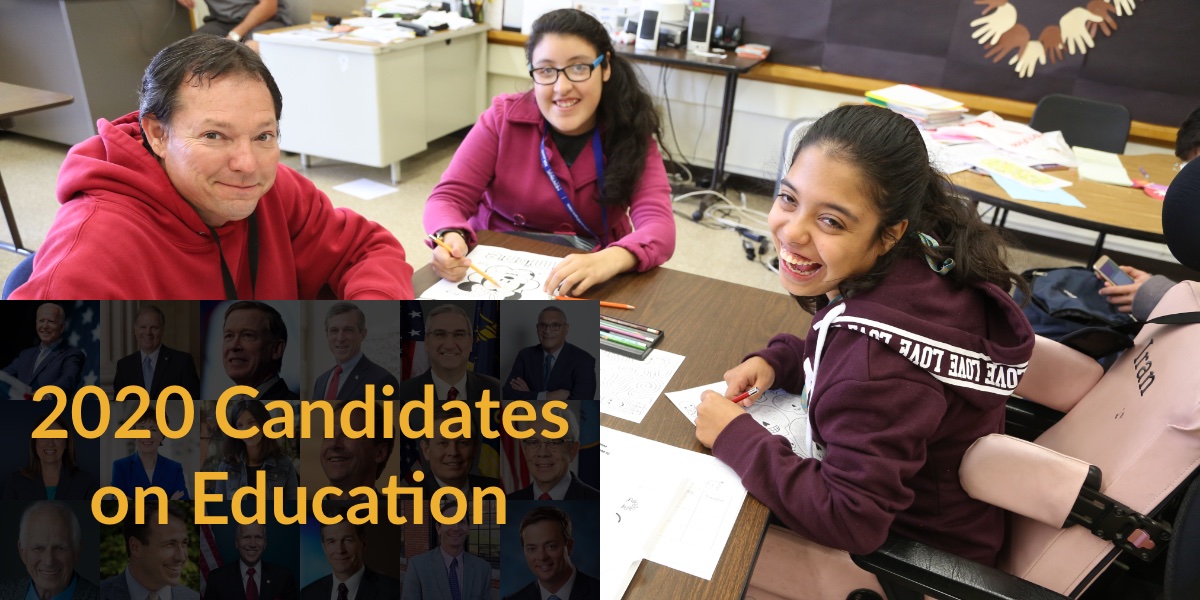
Be First to Comment